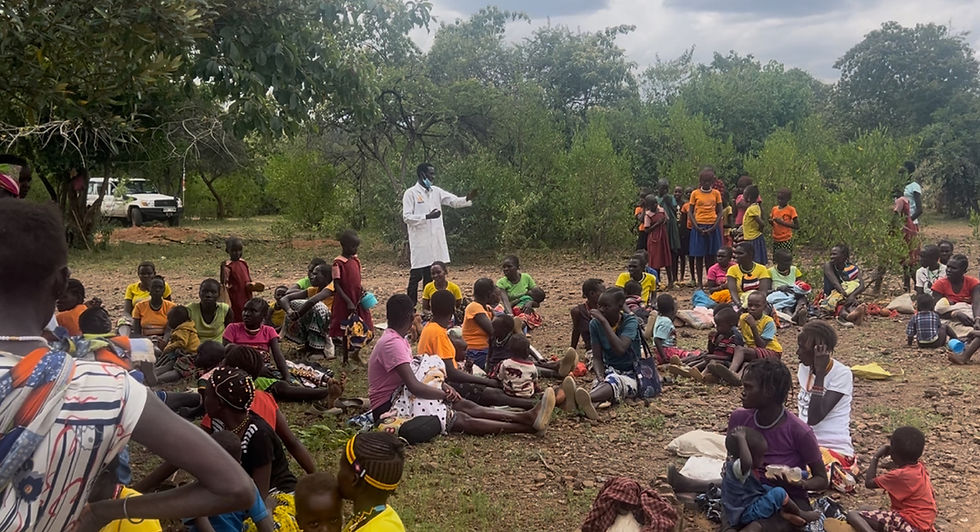What's in a bottle of Soda?
- Hellen Nyakundi
- Oct 4, 2020
- 2 min read
Updated: Nov 24, 2021
by Hellen Nyakundi
It was a beautiful day in Chesakam Village, in Baringo County, Kenya. We had driven 10 km from Chemolingot Town, the headquarters of Tiaty Sub-county, across the sun scorched plains to conduct a Kala-azar screening exercise. The chief and village elders and community health volunteers had mobilized the pastoralist community for this event. The screening site was at a water point where the community fetched water from a solar powered borehole for domestic use and for their animals.
The team consisted of a lab technician, a nurse, a clinical officer and a community health volunteer. Their work was to identify and diagnose Kala-azar suspected cases. Alongside screening was a mobile cleaning to treat minor ailments as the CHV conducted health education and demonstrated vector control measures. These activities are funded by the Izumi foundation and implemented by the Northeastern university, Boston USA and the University of Nairobi, School of Public Health.
Five hours of screening later, we had four positive results; three males and one female. Among them was a two year old boy who was running a high fever and a quick decision was made to rush him to Kimalel Health Centre, the only Kala-alazar treatment site in Baringo County, located about 100 km from the screening site.
At the end of the day and in the spirit of Ubuntu we shared refreshing, thirst quenching sodas with the community. Respecting the traditional hierarchy, we served the men first, the children sat in small circles. You could see the excitement and eagerness in their eyes. Their little hands held out for biscuits that accompanied the soda, awaiting their turn to pick what to drink. “Sprite, Fanta, Coke, Stoney, Black currant, orange, and pineapple” they shouted in enthusiasm. The chatter and laughter was infectious. The ‘pop’ and fizz sound of the soda bottles spurred conversations along as we downed the refreshments. We swapped struggle and success stories spiced by occasional humor. Culturally, eating together is a sign of caring. As the African saying goes “The man who eats alone dies alone”.
Kala-azar is fatal if not treated. About 4000 cases are reported annually in Kenya. There is an urgency to increase the number of screening, diagnostic and treatment sites to improve access to these health services in the semi-arid vast and isolated areas where the disease is endemic. The long-term objective is to reduce the number of cases to the point where we start talking about Kala-azar elimination and not just control.





Comments